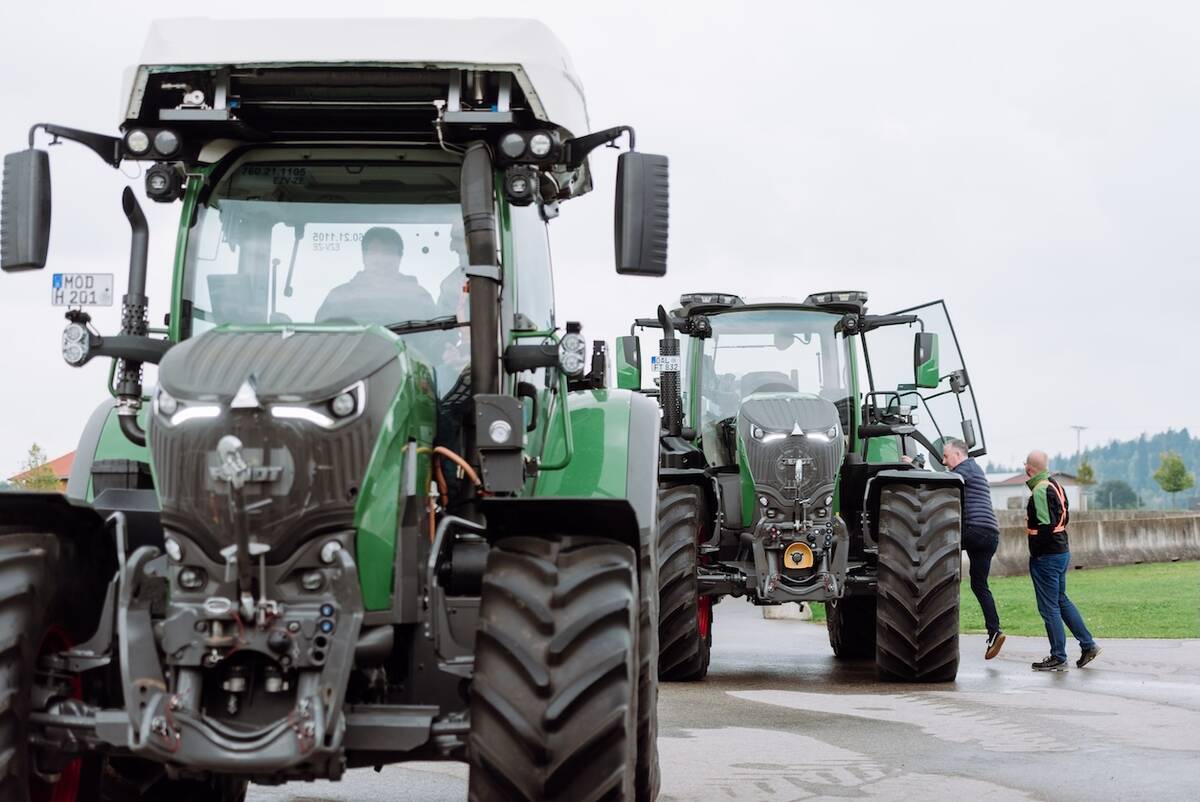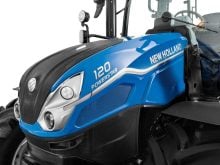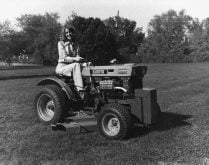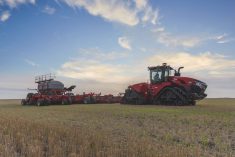Glacier FarmMedia – It’s an uphill battle but the right-to-repair movement is getting closer to winning over lawmakers, says a leading American advocate.
Right-to-repair legislation has been introduced in 42 states and two provinces but none of the bills have made it into law, Gay Gordon-Byrne, head of The Repair Association, conceded during a recent webinar hosted by the Canada West Foundation.
Why it matters: Right-to-repair legislation would allow farmers to repair their own equipment rather than having it fixed by a dealership.
Read Also

Agco worries about outlook for North America
Agco chief executive officer Eric Hansotia recently had both good and bad news to share about the demand for new farm equipment.
Gordon-Byrne told another panelist, Eric Wareham of the North American Equipment Dealers Association, that the fight is far from over.
“The dealers have frankly done a magnificent job of lobbying against right-to-repair and I say, ‘Eric, of all the bills that haven’t passed, congratulations, you did a great job,” said Gordon-Byrne.
“But that is definitely ending. We see the writing on the wall in other states and I think you’ll see it in a couple of provinces as well. This is not going to stand up for very much longer.”
Not so, replied Wareham, whose Kansas-headquartered association represents agricultural, industrial, forestry and outdoor equipment dealers.
“You don’t say, ‘well I bought my Microsoft Office suite, I own it and I should be able to do whatever I want with it’,” he said. “You license it. That’s the world that we live in. I think their position that you should have 100 per cent access to everything is unreasonable and I think legislators tend to agree with that as well.”
Right-to-repair has become a hot issue because something as simple as a software glitch causing an error code requires a technician. The related delay that can be extremely costly at critical times during the growing season. Many producers argue they should have access to diagnostic tools, codes and manuals so they can deal with relatively straightforward problems themselves.
Manufacturers and dealership groups argue that many people just want to bypass emissions controls and boost horsepower, which they term the ‘right to modify.’
Farmers already have the ability to repair 98 per cent of a piece of agricultural equipment, Wareham argued.
“The two per cent we do not allow access to is our critical safety and emissions criteria functions,” he said. “We fully support the right to repair but not to modify.”
Producer downtime is a problem, Wareham acknowledged, but he said there are two causes: a shortage of technicians and a lack of broadband.
“Any kind of malicious intent by the dealers or manufacturers to prevent repair is not the cause (of downtime),” he said. “Rural broadband is hard to come by and that means dealers have to send technicians out to the field to do some ticky-tacky repairs sometimes.
“And that’s very frustrating to customers. We have the technology to get around that but we need the digital infrastructure to form a rural broadband.”
One panelist wondered if manufacturers and dealers aren’t putting the cart before the horse by producing equipment that depends on broadband availability for routine servicing.
“I don’t think equipment should be held up for that,” said Elizabeth Chamberlain, director of sustainability at iFixit, a California company that runs a how-to website for repairing consumer and other electronics.
“This is something we see in medical device repair because when medical equipment winds up in developing countries where they don’t have access to broadband all the time and it requires that device to phone home in order to complete a repair, that really damages peoples’ ability to keep that equipment up,” said Chamberlain.
“It’s really unfortunate that this is an increasing trend in repair in so many of these industries.”
It might be a good idea to set a legislative “floor” for dealerships’ best practices around repairs, suggested moderator Carlo Dade of the Canada West Foundation, a Calgary public policy think tank.
“God forbid something happens and (a major dealership) gets bought out by some Wall Street shark who is just out to shake down farmers,” he said. “Would it be best to take your best practice and enshrine that as a base or a floor, not to box you in, but to assuage people that are worried about the issues?”
That could have unintended consequences, said Wareham, and the state shouldn’t have a role in codifying private business practices.
However, another right-to-repair advocate on the panel said governments should be holding hearings and listening to the problems that farmers are facing.
That would give farmers more of a voice on the issue, said Willie Cade, a consultant and member of The Repair Association, which is headquartered in New Jersey.
“We’d have some real testimony by farmers about how they are being restricted,” said Cade, whose grandfather invented the manure spreader and sat on John Deere’s board for three decades.
“Manufacturers typically say only two per cent is restricted because of national legislation on emissions. And in those hearings what you will hear is that particular information refuted.”
“If you can’t fix 100 per cent of your stuff, there is an impediment there that doesn’t belong in an ownership arrangement,” added Gordon-Byrne.
– This article was originally published at the Alberta Farmer Express.













